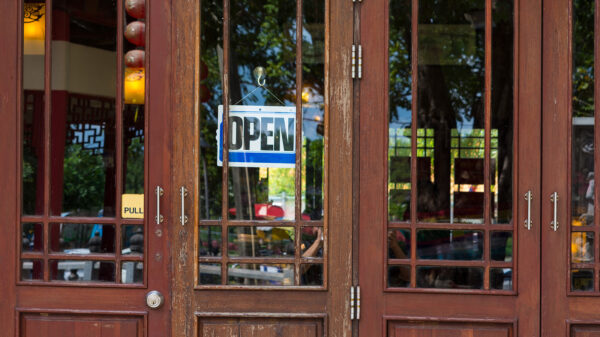Retirement could be a jarring transition from an entire life of utmost busyness. What does our evolutionary historical past say about which is best for us: operating laborious or taking it simple?
The Predator-Prey Divide
There’s no unmarried rule about how lively animals will have to be for his or her well being and reproductive luck. It relies on how they make a residing. Predators paintings little and spend lengthy hours napping within the colour. Prey animals are necessarily the other. If they’re grass-eaters, they spend maximum in their day grazing and chewing the cud (if they’re ruminants). The reason being that meat is a high-energy meals while grass, and different herbs, are low on calories and excessive on fiber. This interprets into lengthy hours of chewing and digesting, leaving little time for sleep.
As hunter-gatherers, people are each predators and vegetarians. So one may be expecting our standard job degree to be intermediate between predators like lions and prey like sheep. Lions generally sleep for approximately 16 hours an afternoon, while sheep generally relaxation for approximately six to 8 hours in keeping with day.
As each meat-eating predators and vegetarians, people have a combined job agenda. We sleep for approximately 8 hours, which is greater than a sheep however so much lower than a lion.
The (Unhappy) Historical past of Paintings
People had been extraordinarily busy because the Commercial Revolution. The improvement of synthetic gentle intended that shall we paintings at any hour of the night time or day. Welcome to the hell of shift staff!
Industrialization additionally introduced an obsession with productiveness, or the quantity of product generated in keeping with hour of labor. Staff needed to keep busy for many in their shift in the event that they sought after to stay their jobs.
Busyness could have come into its personal with industrialization however laborious paintings first arrived with the Agricultural Revolution. We all know this from analysis at the agricultural transition in fresh historical past via hunter-gatherer other folks such because the Agta within the Philippines (1).
When the Agta transitioned to rising their very own meals, they needed to paintings more difficult. Taking from nature is more uncomplicated than generating your personal meals. The Agta put in additional hours of labor and skilled a decline of their recreational time. So, hunter-gatherers led relatively leisured lives. They infrequently labored for greater than about 5 hours in keeping with day, despite the fact that girls put in additional hours than males because of their higher involvement in taking care of youngsters.
When farmers was busier, was once this excellent for them or unhealthy for them? There are conflicting perspectives. The classical Greek thinker Aristotle had a robust opinion at the factor
Aristotle’s Take
Aristotle’s take was once that being lively makes people glad. As he expressed it: “Happiness is an job of the soul in accord with distinctive feature.”
The thinker definitely put this maxim into follow in his personal lifestyles. He was once phenomenally productive as a pupil, investigating new nation-states of studying from embryology to literary complaint and politics.
But, Aristotle was once a part of a leisured elite and more than likely didn’t recall to mind himself as an worker even if he served as a tutor to Alexander the Nice, amongst different Greek nobles. He shouldn’t have preferred busyness for its personal sake. That, in any case, was once the lifetime of a slave.
The relationship between being lively and being glad is borne out in analysis on medical despair. Individuals who stay bodily in addition to mentally lively most often revel in an increased temper. Those that revel in a depressive episode have a tendency to be torpid and feature bother getting up within the morning. More than a few healing interventions intention to extend bodily job, whether or not via strolling, or via directed job like gardening or using horses.
In any case, our busyness is in large part made up our minds via our subsistence financial system. Farmers are busier than hunter-gatherers as a result of generating your personal meals is labor-intensive and requires lengthy hours of labor.
Is Busyness Excellent for Us?
Farming societies had considerably extra youngsters than hunter-gatherers. Because of this there was once a inhabitants explosion. In that sense, busyness was once excellent for our Darwinian luck (2). It was once no longer excellent for our well being, on the other hand. Population of farming societies had shorter lifestyles expectancy they usually suffered from repetitive-stress accidents to the joints. In addition they had shorter stature, suggesting that their vitamin was once no longer sufficiently various. (By the way, people may just no longer return to being hunter-gatherers as a result of there isn’t sufficient room to be had for all people to forage).
Employees didn’t fare neatly after they have been compelled to paintings lengthy hours in the beginning of the Commercial Revolution. Well being in the end advanced, as mirrored in emerging stature. The well being benefits have been associated with a number of adjustments, together with advanced sanitation, consuming water, and public well being.
In addition they mirrored the upward push of industry unions and the arriving of a far shorter paintings week. Our species prospered with the shortened paintings week. It’s more than likely higher to not paintings an excessive amount of more difficult than our far flung ancestors did.
References
1 Dyble, M., Thorley, J., Web page, A.E., Smith, D. & Migliano, A.B. (2019), Engagement in agricultural paintings is related to lowered recreational time amongst Agta hunter-gatherers Nature Human Behaviour, 2019 DOI: 10.1038/s41562-019-0614-6
2 Barber, N. (2023). The stressed species. Portland, ME: Trudy Callaghan, Writer.
3 Floud, R., Fogel, R. W., Harris, B., & Hong, S. C. (2011). The converting frame: Well being, vitamin, and human construction within the Western international since 1700. Cambridge, England: NBER/Cambridge College Press.



























![VVS: Meet the Emerging K-Pop Woman Crew Set to Shine Like Diamonds [Teaser Images] – Kpoppie VVS: Meet the Emerging K-Pop Woman Crew Set to Shine Like Diamonds [Teaser Images] – Kpoppie](https://i1.wp.com/kpoppie.com/wp-content/uploads/2025/04/vvs-man-100.jpg?w=100&resize=100,100&ssl=1)







You must be logged in to post a comment Login